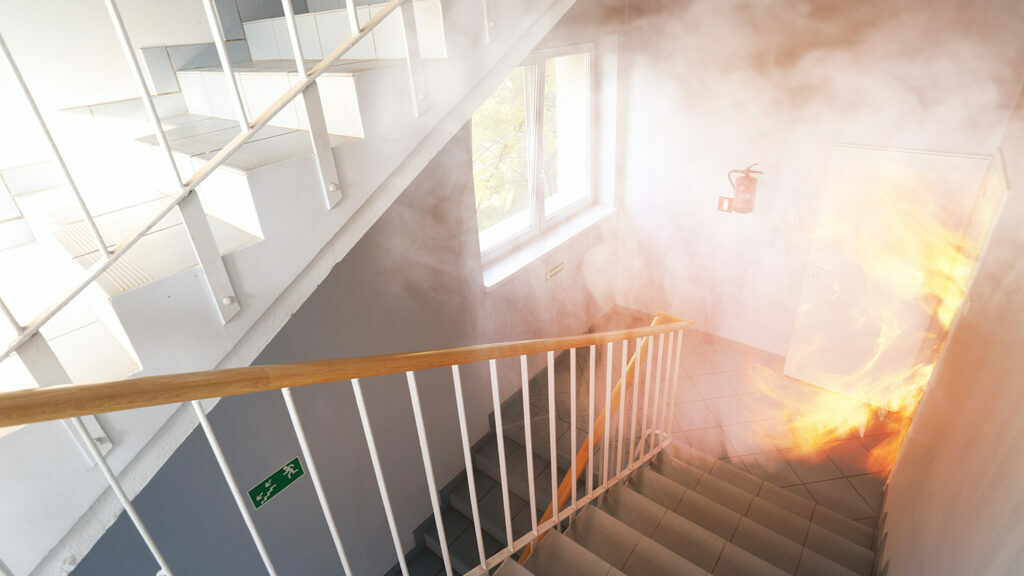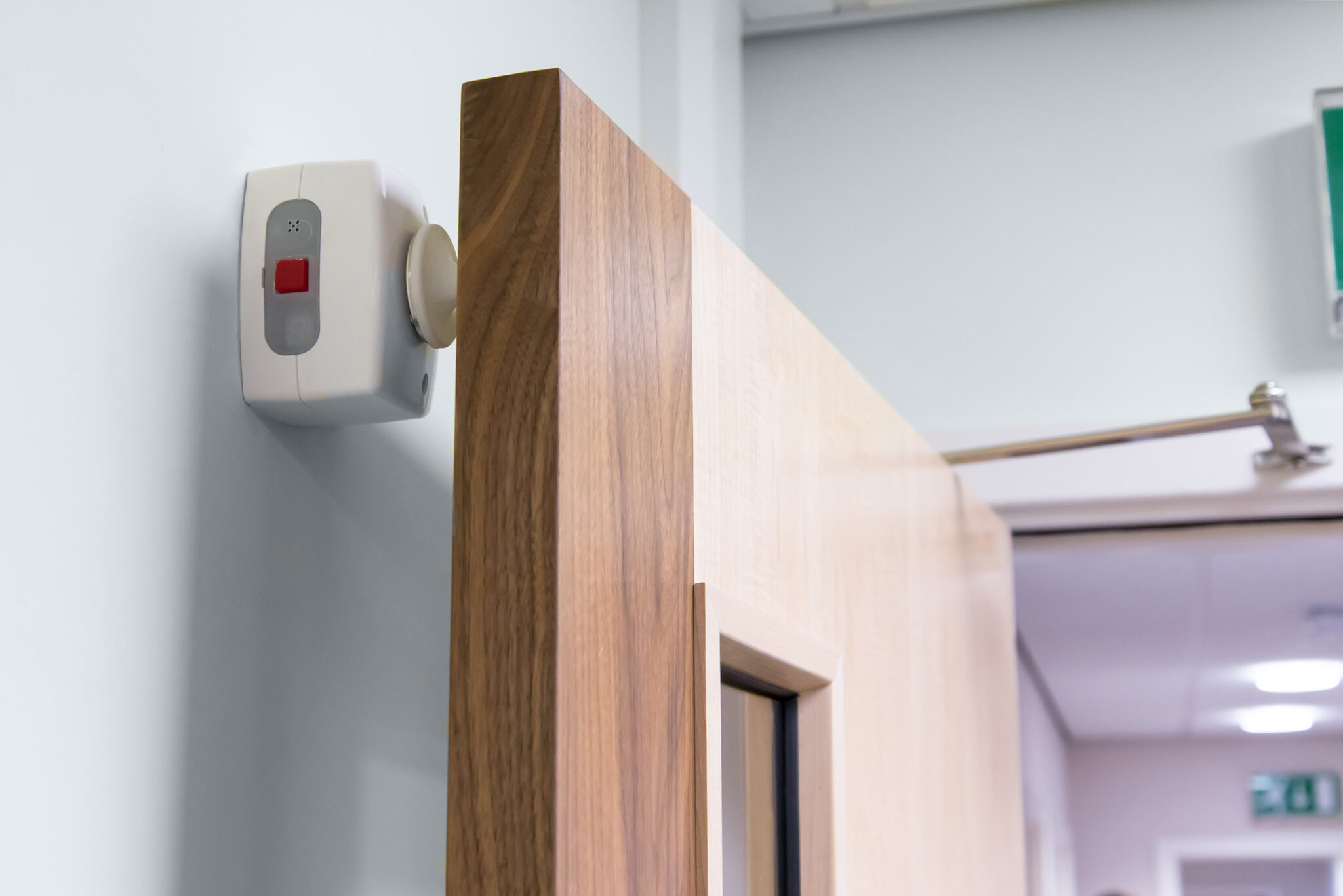Exclusive: The hidden affects of COVID-19 on fire safety
- May 20, 2021
- 9:42 am


Iain Hoey
Share this content
Geofire reveals the findings from their study that highlights the impact the pandemic has had on fire safety in the workplace
As businesses reopen in the UK, they must continue to ensure that their fire safety is not only compliant but adapted to facilitate the added challenge of the on-going pandemic. Over the last 12 months, COVID-19 has dominated the world with the necessary, but disruptive nature of lockdowns and restrictions impacting day to day business across the UK. However, despite the turbulent year, the risk a fire poses to life and property remains unchanged. Fire safety is a vital consideration for any organisation, large or small, which has a duty to protect those in its care as well as its buildings assets.
Geofire, a leading manufacturer of fire safety technology, has published a report based on a recent survey, exploring how COVID-19 has impacted the fire safety industry over the last 12 months. The report highlights key themes such as the impact of financial pressure and the increase in door wedging during the pandemic. The responses were provided by a range of people working within the industry, such as; Fire Risk Assessors, Fire Door Auditors, H&S Advisors and Fire Safety Consultants.
Andy Collinson, CEO at Geofire, said: “As the manufacturer of fire safety products, including fire door holders and closers, we wanted to conduct this survey to learn from others in the industry and raise awareness of the importance of ensuring fire safety compliance. This is even more important as restrictions ease and businesses and buildings across the UK begin to reopen, some for the first time in over a year.”
The findings
Impact of COVID prevention measures
The recent report found that 37% of respondents thought COVID prevention measures had a negative impact on fire safety. Measures such as the closing of premises, alterations to buildings and reduced staffing levels were found to have a direct impact on fire safety compliance. One respondent commented: “It is the result of pressure to keep the premises COVID-19 safe, reducing visits and the need to impose social distancing measures.”

Priority of fire safety
31% of respondent’s stated that the priority of fire safety had been negatively impacted since the start of the pandemic. A loss of revenue, prioritisation of COVID prevention measures and business attitudes to fire safety were suggested to be the key issues with one Fire Door Auditor commenting: “Unfortunately, there is a lack of understanding about the priority of fire safety among businesses and a lack of correct fire stopping within the buildings where compartmentation surveys are urgently needed.”
31% of respondent’s stated that the priority of fire safety had been negatively impacted since the start of the pandemic.
Financial pressure
84% of the respondents identified that financial pressure has made businesses less likely to carry out fire safety maintenance and improvements. A Health and Safety Advisor, said: “Fire will not stop for COVID-19, employers still have an obligation to keep people and premises fire safe.”
Postponed site visits
The results show that on average 29% of site visits were postponed during the last 12 months. As fire safety professionals were classed as key workers during the initial lock down and able to continue essential work and visits, the results suggest that the pandemic has still been a barrier in the completion of fire safety maintenance, servicing and installation.
Increase in door wedging
At 53%, over half of the respondents recorded that they had seen an increase in door wedging since the start of the pandemic. A measure taken to prevent the spread of COVID-19, the holding open of doors has been adapted as a solution to prevent door handle contact, create one-way systems or improve ventilation. While this may seem like a quick and easy infection control measure to implement, it does present significant challenges to the integrity of a fire safety strategy.

Fire doors play a vital role in the safety of buildings, and their correct maintenance is vital in the protection of a building and its occupants. This result suggests that there is still a lack of awareness around the importance of fire doors to compartmentalise fire and smoke and protect escape routes.
The solution
Making sure fire doors are closed when the fire alarm sounds is extremely important. The British Standard 7273-4:2015 Code of Practice for the operation of fire protection measures – Part 4: actuation of release mechanisms for doors gives guidance on the installation, commissioning and maintenance of fire door holding systems.
Depending on the installation and level of protection required, there are a variety of fire door retainers readily available. As a general rule, smaller ad hoc systems lend themselves to acoustic actuation, while radio systems are more suited to larger, noisy environments.
Radio controlled solutions
Radio controlled fire door retainers are triggered wirelessly by radio waves from a controller connected to the existing fire panel or interface unit. As minimal wiring is needed, these are often used for fitting into large, existing buildings but still offer high levels of protection. These systems are installed by an approved, trained professional as a site survey has to be carried out prior to installation.

Acoustic, stand-alone devices
Sound activated fire door retainers react to the noise of the fire alarm and some devices can learn the sound of the building’s specific fire alarm, so they will only release when the alarm sounds. This is a cost effective solution as there is no need for wiring to a fire panel.
Sound activated fire door retainers are battery powered and can be installed quickly and easily. They are wire-free, so installing them won’t affect a building’s infrastructure.
Innovators of fire technology
Geofire has been designing and manufacturing electromagnet fire door holders and closers for almost 50 years from its factory in County Durham. Established in 1972, the company is still continuing to invest in research and development to be able to offer cost effective and innovative fire technology.
Nick Goddard, Research and Development Manager at Geofire, said: “What makes Geofire stand out from the rest is that all of our products are designed and manufactured in-house by a team of experienced engineers. We continually invest in research and development to be able to offer cost effective and innovative fire technology solutions.
“At Geofire we have a solution available for all installations, whether it is a new build using our hard-wired products, a noisy environment where radio would be more suitable (Salamander) or, where an acoustic solution is required to close the fire doors upon hearing the sound of the fire alarm (Agrippa).
“Our distribution network is continuously growing around the world and we are always interested to hear from fire safety specialists and distributors wanting to know more about our range of products.”
To read the full COVID-19 and Fire Safety in the UK Report and download the free PDF, visit Geofire’s website.
| Summary 1. 31% think the priority of fire safety has been negatively impacted since the start of the pandemic 2. 37% of respondents think COVID prevention measures have had a negative impact on fire safety 3. 29% of site visits have been postponed in the last 12 month. 4. 53% of respondents have seen an increase in the wedging of fire doors 5. 84% think that financial pressure has made businesses less likely to carry out fire safety related maintenance or improvements |



